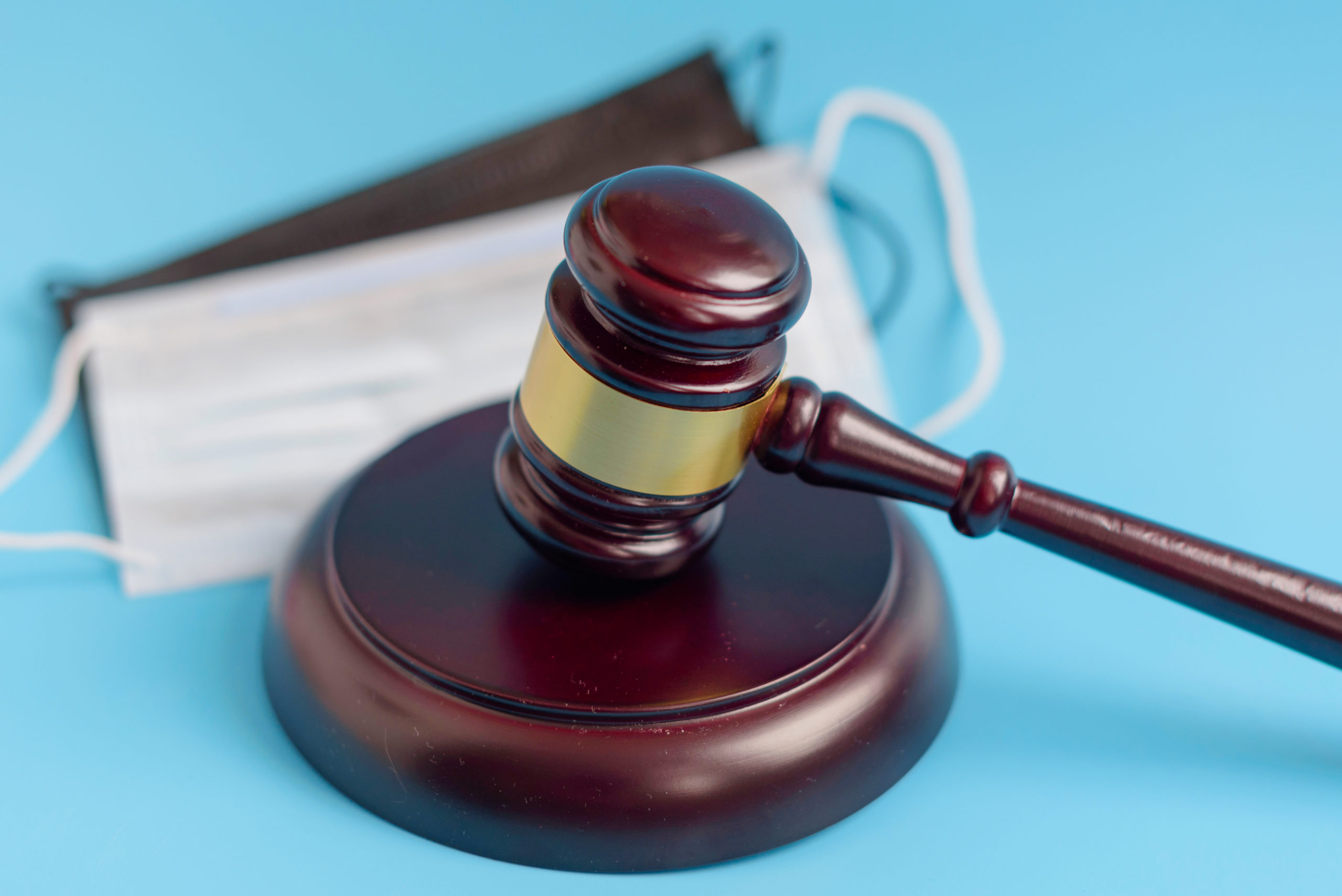Article by Courtney C. Brennan, Esq.
For employers of all sizes, the COVID-19 pandemic has presented a host of challenges. From keeping pace with constantly evolving guidance to making decisions on whether or not to mandate vaccination, employers have faced—and continue to face—difficult issues that present risks for litigation.
Employers can face litigation related to COVID-19 on a variety of fronts spanning regulatory compliance to employee safety complaints. Below is an overview of some of the primary risks facing employers in 2021.
Families First Coronavirus Response Act (FFCRA) Claims
The Families First Coronavirus Response Act (FFCRA) was one of the first major pieces of legislation Congress enacted in response to the COVID-19 crisis. Among other provisions, the FFCRA included provisions extending the right to paid leave afforded to qualifying employees through Emergency Paid Sick Leave or the Emergency Family and Medical Leave Act.
Although the FFCRA expired on December 30, 2020, individuals have a two-year statute of limitations from the date of the alleged violation to file a claim (or 3 years for a willful violation). Many employers, however, are beginning to face claims arising out of the FFCRA’s paid leave provisions. In particular, there is a rise in claims alleging:
- Failure to inform employees of their rights under the FFCRA; and,
- Wrongful termination of employees who requested leave under the FFCRA.
Retaliatory Discharge Claims
In addition to claims alleging wrongful termination in relation to the FFCRA, we are also seeing claims involving allegations of retaliation. For example, some employees have filed claims alleging that they were wrongfully discharged after raising concerns about COVID-19 safety in the workplace (in addition to filing claims for workplace safety violations under OSHA). There have also been recent cases of employees filing discrimination and constructive discharge claims based on employers’ alleged refusal to provide reasonable accommodations.
Vaccine Policy Litigation
As we recently discussed, employers can require employees to get vaccinated against COVID-19—subject to exemptions because of an employee’s sincerely held religious belief or disability. These exemption requests, as one might expect, could serve as the foundation for a wave of lawsuits in the employment arena. Some examples of the types of claims to be prepared for include:
- Claims alleging failure to provide reasonable accommodations for employees who assert an exemption or cannot get vaccinated (or are at high risk from vaccination); and,
- Claims alleging retaliation against employees who refuse to get vaccinated.
Wage and Hour Litigation
There has also been a rise in proposed collective and class action lawsuits against employers regarding the mandatory temperature checks and time spent completing a COVID-19 symptom checklist prior to clocking in for the day. Employees are alleging that the time spent undergoing the screenings constitutes “hours worked” under the FLSA and should count as compensable time. These lawsuits highlight for employers the importance of reviewing timekeeping policies with counsel to ensure they are accurately tracking employees’ time and in compliance.
Non-Competition/ Restrictive Covenant Litigation
Another area in which courts are experiencing an increase in claims is in the area of restrictive covenants. Over the course of the last year, many employees were laid off as a result of COVID-19 and may be wondering how to handle their non-compete agreement. Under these circumstances, employees are asking courts to find their non-competition covenants unenforceable so that they can seek employment with other companies. Although application varies by state, in light of the pandemic and high unemployment rates, employers can expect courts to likely increase scrutiny of non-competes where employees were laid-off because of the pandemic.

